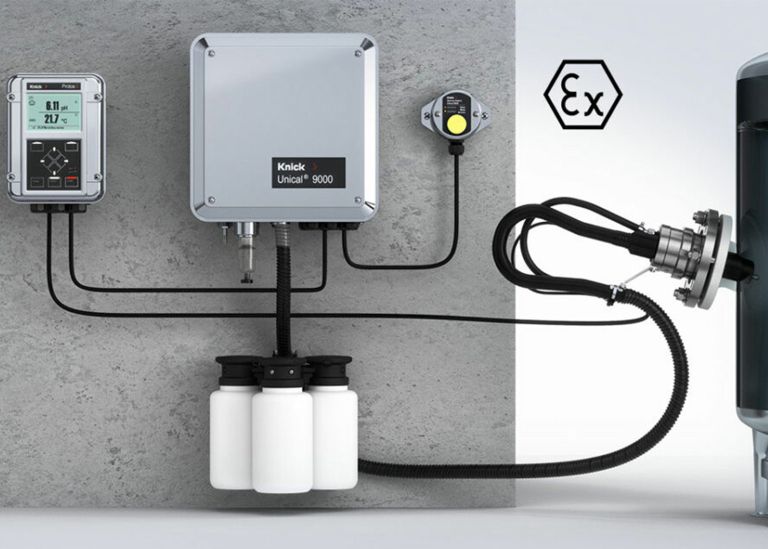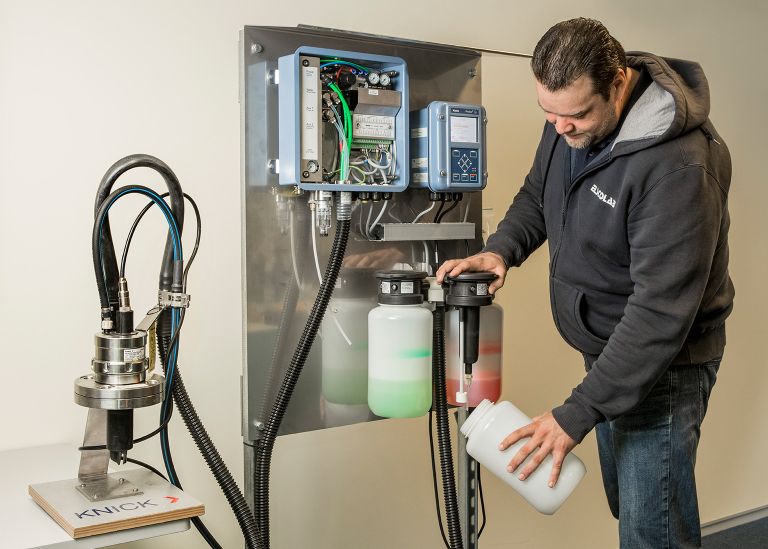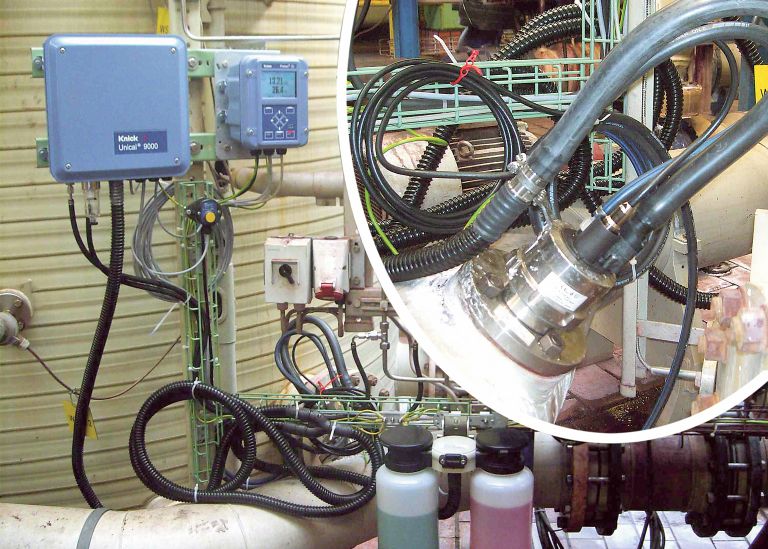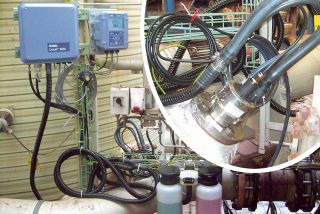
cCare: an innovative concept for cleaning and calibrating pH sensors
We asked 100 maintenance managers: "Which inline analytics measurement requires most maintenance?"
Actually, we did not really do that, but it is well known that inline and online pH measurements require considerable maintenance, calibration and recalibration. This obviously comes at a cost, not just in working hours, but also in replacing pH electrodes that are no longer working properly.
Process and maintenance managers have observed that the quality and accuracy of a pH measurement are highly dependent on how maintenance and calibration are carried out (and by whom), but that is not the intention! You have to be able to 100% trust a process analyser.
What if...?
What if we could drastically minimise all the problems and maintenance costs on pH measurements, while ensuring reliability? That sounds like music to your ears, doesn't it?
Well, there is good news!
There is a concept available under the cCare banner that does exactly that: reduce maintenance and costs, while increasing reliability. cCare is a concept from KNICK that is fully supported by ELSCOLAB.
cCare
The cCare concept is based on an intelligent measuring converter, an electro-pneumatic unit and a pH electrode in a "retractable" holder/fixture. A trinity, so to speak.
The system is entirely freely programmable. You determine the frequency of maintenance and/or calibration. This can be done periodically, at fixed intervals or controlled remotely (event-based).
The system is surprisingly simple to operate, although there is a fair bit of technological ingenuity behind it. The pH electrode in the retractable holder is pneumatically removed from the process and isolated from it. It is then rinsed with water and, if necessary, with one or more chemicals (e.g. acid, alkali or detergent). A fully automatic calibration can then be performed afterwards. Buffer solutions are automatically pumped to the electrode.
Confidence through digitisation
It goes without saying that you want to make sure your measurement is working properly. This is only natural. Digitalisation is your friend in this regard! pH electrodes today are intelligent. This means that they have details about their various calibrations on board, as well as information about their "state of health”, which is the status. This way, they have an indication of their wear or expected lifespan. You can call up quality parameters such as glass or reference impedance. This allows you to truly know how the electrode is doing.
All of this information is available in the electrode. Naturally, you would not want to walk to your electrode every day to check on its health. Digital communication allows you to bring all information about the sensor and the measurement up to your PLC or SCADA system.
The value of reliability of a measurement cannot be overestimated!
The added value of the cCare concept resides precisely in its reliability. Plant managers and process engineers are well aware of the cost of poor product quality, longer waiting time, product loss, chemical overdose and... time.
There are numerous examples of processes where people wait a little longer before moving on to the next process step, "just to be on the safe side". Or they add a bit of a product anyway to make sure the reaction is completely finished. But what if the final product does not meet quality requirements due to unreliable measurement? The associated cost for this exceeds that of a pH measurement hundreds or even thousands of times.
Extended lifespan
Our experience shows that with frequent manual maintenance, the lifespan of a pH electrode is much shorter than with automated systems. Besides the risk of the electrode breaking, the way work is done and the conditions in which maintenance has to be done do not generally benefit quality. It is not exceptional for the lifespan of an electrode to be extended from a few weeks to several months, and for daily interventions to be replaced to a check-up once a month.
Conclusion
cCare is a concept that can be implemented anywhere. This includes the chemical process industry, metallurgy and other heavy industries where reducing maintenance, costs and time are particularly appealing as well as the food industry, biotechnology and pharmaceuticals where security and reliability and especially consistent quality are important.
The digital aspect, both on the electrode side with built-in quality parameters and digital communication to upper levels, allow for more than flexible integration into all possible processes and applications.
More information?



